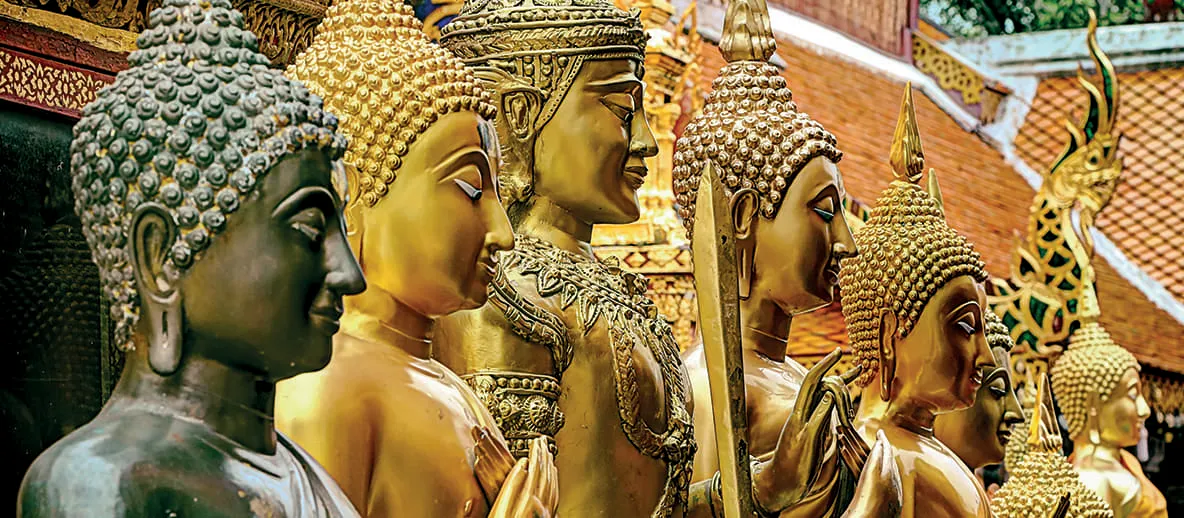- Voor zorgaanbieders
- Voor makelaars
Individuen en gezinnen
- Global Individual Health
- Spanish Domestic Individuals
Werkgevers
- SME Employer Health
- Large Corporation Health
- Spanish Domestic Employers
IGO & NGO
- IGO & NGO Health
Individuen en gezinnen
Topbestemmingen die we dekken
Ziektekostenverzekeringen voor expats
- Inside Expat Health Hub
- Een gids voor internationale ziektekostenverzekeringen voor gepensioneerden
- Een gids voor internationale ziektekostenverzekeringen voor werken in het buitenland
- Uitleg over ziektekostenverzekering voor expats
- Een gids voor internationale ziektekostenverzekeringen voor studenten
- Verhuizen naar het buitenland terwijl u zwanger bent
Kiezen voor een ziektekostenverzekering
- Reisverzekering vs. internationale ziektekostenverzekering
- Kiezen voor een ziektekostenverzekering
Landengidsen
- Landengidsen
Veelgestelde vragen
- Veel gestelde vragen
Werkgevers
Global Health Benefits Europe
- Gezondheidspolissen voor werkgevers
- Cigna Inspire-polis
2 - 149 werknemers
- Internationale gezondheidspolissen
Grote bedrijven
- Gezondheidspolissen voor Ondernemingen
Informatiebronnen voor leden
- Nuttige documenten en informatie
- Amerikaanse lijst met receptgeneesmiddelen
Klant
- Inloggen werkgevers
IGO, NGO & overheid
- Overzicht
IGO & NGO
- Intergouvernementele organisaties (IGO's)
- Niet-gouvermentale organisaties (NGO's)
Overheidsfunctionarissen
- Overheidsfunctionarissen
Informatiebronnen voor leden
- Veel gestelde vragen
- Cigna Health Benefits-app
- Informatie betreffende verzekeringsproduct
Klant
- Inloggen werkgevers
Onderwerpen
Individuen en gezinnen
-
Soorten dekking
-
Waar we dekking bieden
- Argentinië
- Australië
- Oostenrijk
- Brazilië
- Canada
- Chili
- China
- Costa Rica
- Egypte
- Frankrijk
- Duitsland
- Griekenland
- India
- Indonesië
- Ierland
- Italië
- Japan
- Koeweit
- Mexico
- Nederland
- Filippijnen
- Portugal
- Singapore
- Zuid-Afrika
- Spanje
- Zweden
- Zwitserland
- Thailand
- Turkije
- VAE
- Verenigd Koninkrijk
- Verenigde Staten
- Vietnam
-
Informatie
- Inside Expat Health Hub
- Een gids voor internationale ziektekostenverzekeringen voor gepensioneerden
- Een gids voor internationale ziektekostenverzekeringen voor werken in het buitenland
- Uitleg over ziektekostenverzekering voor expats
- Een gids voor internationale ziektekostenverzekeringen voor studenten
- Verhuizen naar het buitenland terwijl u zwanger bent
- Reisverzekering vs. internationale ziektekostenverzekering
- Kiezen voor een ziektekostenverzekering
- Landengidsen
- Veel gestelde vragen
-
Voor leden
Werkgevers
IGO, NGO & overheid
Gezondheidsblog
Voor makelaars
Alles wat u moet weten over de visumvereisten voor Thailand
Alles wat u moet weten over de visumvereisten voor Thailand
Als u naar Thailand verhuist, kan het verkrijgen van een visum om te werken of om daar met pensioen te gaan, verwarrend zijn. Op het internet kunt u veel informatie vinden maar dat kan soms tegenstrijdig zijn. Hier heeft ons team een gids samengesteld over de visums die u nodig heeft om naar Thailand te verhuizen, in combinatie met informatie over hoe u een visum kunt verkrijgen.
Verhuizen naar Thailand
Thailand is een prachtig land met een tropisch klimaat, en het is geen wonder dat het het Land van de Glimlach wordt genoemd. Het land heeft zeker een interessante geschiedenis. Uniek in het Verre Oosten is dat het land het enige is dat nooit door Europeanen is gekoloniseerd - grote voormalige leiders hebben het Thaise volk aangemoedigd een groot gevoel van nationale trots te hebben.
Hiernaast brengt de Thaise boeddhistische cultuur geweldige ruimhartigheid en vrijgevigheid met zich mee, in combinatie met een sterke sociale hiërarchie en diepe spirituele band met het verleden.
Het is misschien daarom dat het land nu zo populair is als toeristenbestemming en dat velen steeds weer teruggaan, waardoor de populariteit onder expats wereldwijd toeneemt.
In feite is een expat in Thailand niets nieuws - denk maar eens aan 'The King and I' en u komt in Siam in de jaren 1860 waar Anna Leonowens de gouvernante van de kinderen van Koning Mongkut was. De expat-gemeenschap is sindsdien enigszins gegroeid en Thailand wordt steeds populairder als nieuwe bestemming voor degenen die een expat-leven in het Verre Oosten willen beginnen.
Een visum krijgen

When moving to Thailand, you’ll need to get a visa – a requirement by Thai Immigration Law.
Most people who move to Thailand do so with a tourist visa (valid for 60 days) or a non-immigrant visa which is initially valid for 90 days and which will then need to be extended through Thai Immigration.
Typically, a short term extension of stay is granted up to 30 days for tourist visas or non-immigrant visas, while if you need to extend your stay for longer, on a non-immigrant visa it’s possible to apply for an extended stay for one year, for the following purposes:
- Zakelijk
- Scholing
- Huwelijk
- Pensioen
Zowel toeristen- als non-immigratievisums kunnen worden uitgegeven door een Thaise ambassade of consulaat buiten Thailand, maar verlengingen worden uitgegeven door de Thaise immigratie in het land zelf.
Whichever visa you need, it’s always a good idea to check with the Thai Embassy for the latest information and requirements before applying.
The types of visa that can be issued by Thai Embassies or Consulates include:
Thais toeristenvisum Dit visum kan niet voor zaken of werk gebruikt worden. Het is geldig voor een verblijf tot maximaal 60 dagen, maar kan daarna worden verlengd voor nog eens 30 dagen.
Om voor dit visum in aanmerking te komen, moeten aanvragers het volgende hebben:
- Een geldig paspoort met een geldigheidsduur van meer dan 6 maanden na de aanvraagdatum,
- Ten minste 2 lege pagina’s in hun paspoort
- Een volledig ingevuld aanvraagformulier voor het visum [1]
Zakelijk visum voor Thailand
Als u in dienst bent of wordt gesponsord door een Thais bedrijf, kunt u een zakelijk visum krijgen. Dit is geldig voor een verblijf tot 90 dagen voor een eenmalige inreis of voor één jaar voor meerdere inreizen. [2]
Om voor dit visum in aanmerking te komen, hebben aanvragers het volgende nodig:
- Geen strafblad
- Een goede opleiding
- Een uitvoerbaar bedrijfsplan, inclusief bedrijfsomzet, financiële middelen, etc. [3]
Studentenvisum voor Thailand
Als je gaat studeren in Thailand, stelt dit visum je in staat tot 90 dagen te verblijven voor een eenmalige inreis of één jaar voor meerdere inreizen. Studenten moeten vóór en na hun aanvraag officiële documenten overleggen om de aanvraag te kunnen afronden.
Enkele voorbeelden van deze documenten zijn: een brief van de universiteit/school en bewijs dat ze genoeg geld hebben om het collegegeld en de kosten van levensonderhoud tijdens hun verblijf te betalen. Dit visum kent ook beperkingen voor parttime werk.
Visum voor pensionering of huwelijk in Thailand
Voor mensen ouder dan 50 jaar die in Thailand met pensioen willen gaan of mensen die trouwen met een Thaise inwoner geeft dit visum een verblijf tot 90 dagen voor een enkele inreis of een jaar voor meerdere inreizen.
Er gelden voor dit visum ook financiële vereisten en aanvragers zullen moeten aantonen dat ze tijdens hun verblijf over voldoende financiële middelen beschikken.
Als u een visum voor een huwelijk aanvraagt, moet u een kopie van de huwelijksakte en bewijs van een werkelijke relatie tussen de aanvrager en de andere partij overleggen.
Werkvisum voor Thailand
Dit type visum is nodig wanneer de aanvrager al een baan heeft aangeboden gekregen van een Thais bedrijf of voor zichzelf gaat werken in Thailand. Vergeet niet dat aanvrager eerst een niet-immigrantenvisum moeten hebben voordat een werkvisum voor Thailand kan worden afgegeven.
Verhuizen naar Thailand - Alle aspecten bekeken
Vanwege de geheel andere cultuur en infrastructuur is het verstandig om ervoor te zorgen dat alle aspecten gedekt zijn wanneer u naar Thailand verhuist. Van uw visums en het eten tot ervoor zorgen dat uw gezondheidszorg gedekt is, voorbereiding kan u helpen te zorgen dat uw emigratie-ervaring met weinig stress en succesvol verloopt.
Ga door met lezen
Voor meer informatie over verhuizen naar Thailand, bezoekt u onze landengids voor Thailand.
Bronnen
http://www.thaiembassy.org/london/en/services/7742/84451-Tourist-Visa.html
https://www.siam-legal.com/thailand-visa/business-visa-thailand.php
https://www.siam-legal.com/Business-in-Thailand/thailand-work-permit.php
Gerelateerde artikelen
Contact
Wij zorgen dat u altijd de juiste informatie krijgt, ongeacht of u een lid van ons verkoopteam wilt spreken of algemene hulp nodig heeft als lid van Cigna.
ContactgegevensPopulaire links
Informatie
© 2025 Cigna Healthcare. Alle rechten voorbehouden.
*NB: dit is een vereenvoudigde weergave van de mogelijke vergoedingen en vermeld niet de voorwaarden en uitsluitingen die per vergoeding van toepassing kunnen zijn. De vergoedingen kunnen van tijd tot tijd veranderen. Sommige vergoedingen kunnen deel uitmaken van een optionele module. Raadpleeg de Klantengids voor meer informatie.
Deze website wordt aangeboden door Cigna European Services (UK) Limited, een bedrijf naar het recht van Engeland en Wales met als geregistreerd adres 13th Floor, 5 Aldermanbury Square, Londen EC2V 7HR en registratienummer 00199739. De naam Cigna Healthcare, het logo en andere merken van Cigna Healthcare zijn eigendom van Cigna Intellectual Property, Inc., met een licentie voor gebruik door Cigna Group en zijn operationele dochterondernemingen.
Als u deze links selecteert, wordt u weggeleid van Cignaglobal.com. Cigna Healthcare heeft geen controle over de inhoud of links op de gelinkte sites.

